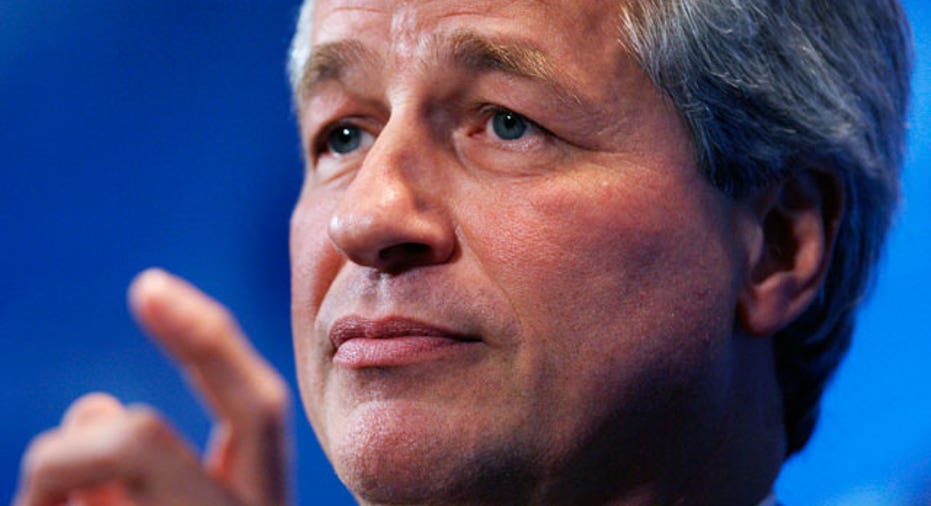Dimon to Testify Before Lawmakers

JPMorgan Chase & Co (NYSE:JPM) Chief Executive Jamie Dimon has agreed to testify before Congress over the bank's recent trading losses, which have ignited a political debate over whether large U.S. banks need to be reined in by regulators or new laws.
U.S. Senate Banking Committee Chairman Tim Johnson said in a statement on Thursday that his panel will invite Dimon to appear before Congress.
He did not say on what date the committee wants Dimon to testify but that it would follow a set of hearings with regulators on the trades and efforts to implement Wall Street reforms that will conclude on June 6.
"As always, we will continue to be open and transparent with our regulators and Congress," JPMorgan spokesman Kristin Lemkau said in a statement. She said Dimon will appear before the panel.
Last week JPMorgan announced that it has suffered at least $2 billion in losses due to trades that went bad.
Johnson said committee staff has been discussing the losses with regulators and the bank since they were disclosed and have determined Dimon should testify.
Critics of Wall Street have pointed to the trades as evidence that reforms called for under the 2010 Dodd-Frank financial oversight law should be strictly enforced once finalized.
Two regional Federal Reserve presidents have said the losses underscore the point that banks like JPMorgan are too big to manage and should be broken up.
These reactions are being dismissed by some analysts and lawmakers as an overreaction since the bank's stability has not been put at risk.
"Even with this loss, I believe they're one of the most profitable financial institutions in the country and unless the facts are diametrically different from what we've heard, there is no risk from this loss to depositors or to tax payers," House Financial Services Chairman Spencer Bachus said on Wednesday.
WASHINGTON WRANGLING
The JPMorgan losses have, in particular, put a renewed focus on whether regulators should tighten the so-called Volcker rule that will restrict bank trading activities. A proposed rule was released in October and a final version is expected later this year.
The restrictions will ban banks from proprietary trading, or trades that are made solely for their own profit, and greatly limit their ability to invest in hedge funds.
The crackdown is named after former Federal Reserve Chairman Paul Volcker who championed the idea.
Its supporters say banks that receive federal backstops, such as deposit insurance, should not make risky trades that could endanger deposits and possibly taxpayer money.
Banks have lobbied the issue heavily saying if the restrictions are too tightly drawn they will negatively impact financial markets and make it harder, for instance, for companies in a variety of businesses to raise funds.
Democratic Senators Carl Levin and Jeff Merkley, who authored the Volcker rule language in Dodd-Frank, said the October proposal creates a loophole in the crackdown because it would give banks the latitude to hedge against portfolio risk as opposed to individual positions.
They have been publicly pressuring regulators to tighten the rule since the trading losses were announced.
In a sign of the political importance surrounding the issue, Levin told reporters on Thursday that White House National Economic Council Director Gene Sperling called him this week to discuss the Volcker rule. Levin said he urged Sperling to have the White House speak out on the need to tighten the hedging language.
The rule is being written by the federal banking regulators, the Securities and Exchange Commission and the Commodity Futures Trading Commission, all of which are independent regulators.
Under Dodd-Frank, the Treasury Department is suppose to coordinate the rule writing and Levin has previously said he believes the department pushed for the broader hedging exemption allowed under the October proposal.
On Thursday, he said Sperling had assured him that is not the case and that Treasury has only tried to coordinate discussions.
"I accepted that," he said.
One regulator has come out publicly in favor of tightening the October proposal.
CFTC Chairman Gary Gensler wants a final rule to bar portfolio hedging, his spokesman Steve Adamske said.



















